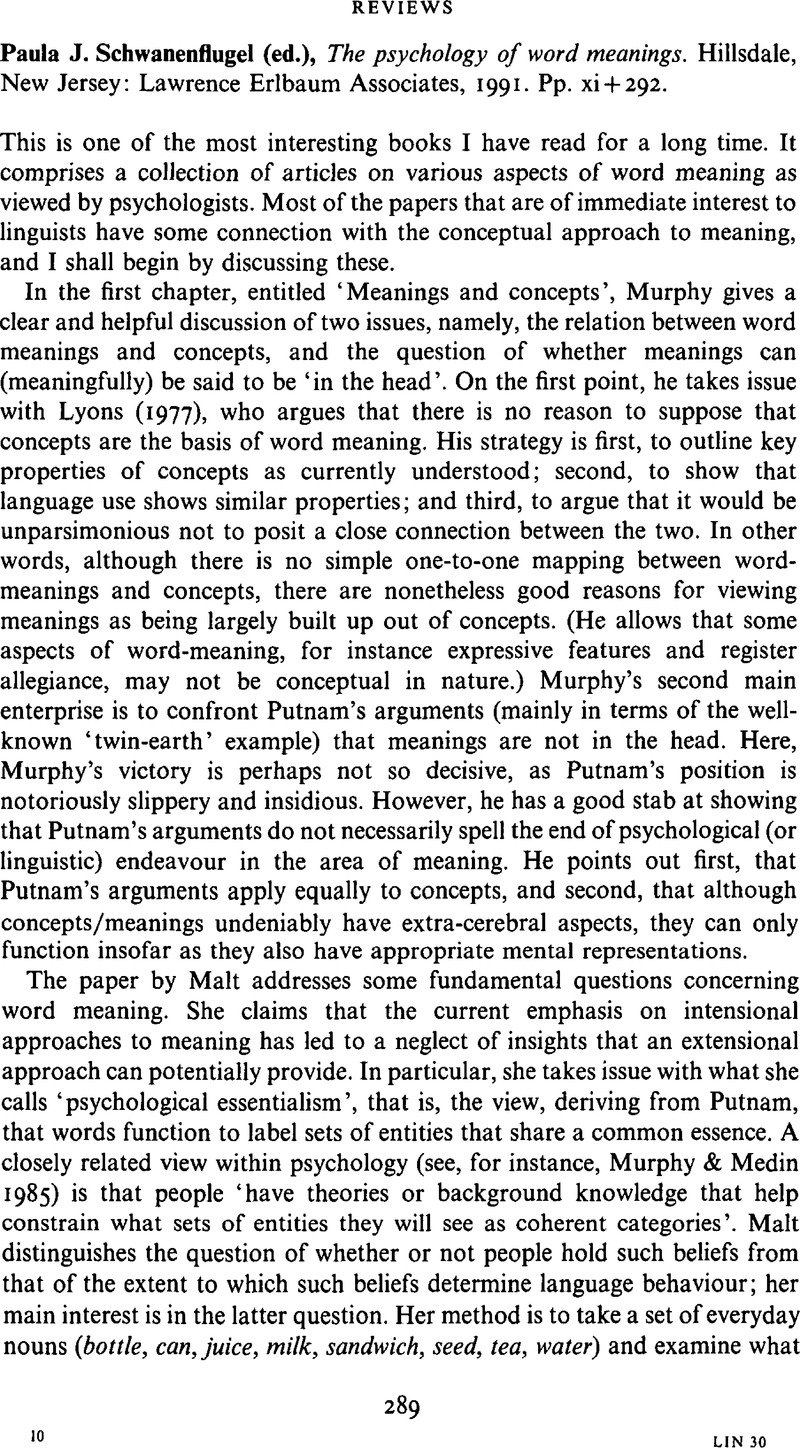Barsalou, L. W. (
1987). The instability of graded structure: implications for the nature of concepts. In
Neisser, U. (ed.)
Concepts and conceptual development: ecological and intellectual factors in categorization.
New York:
Cambridge University Press.
101–
140.
Google Scholar 